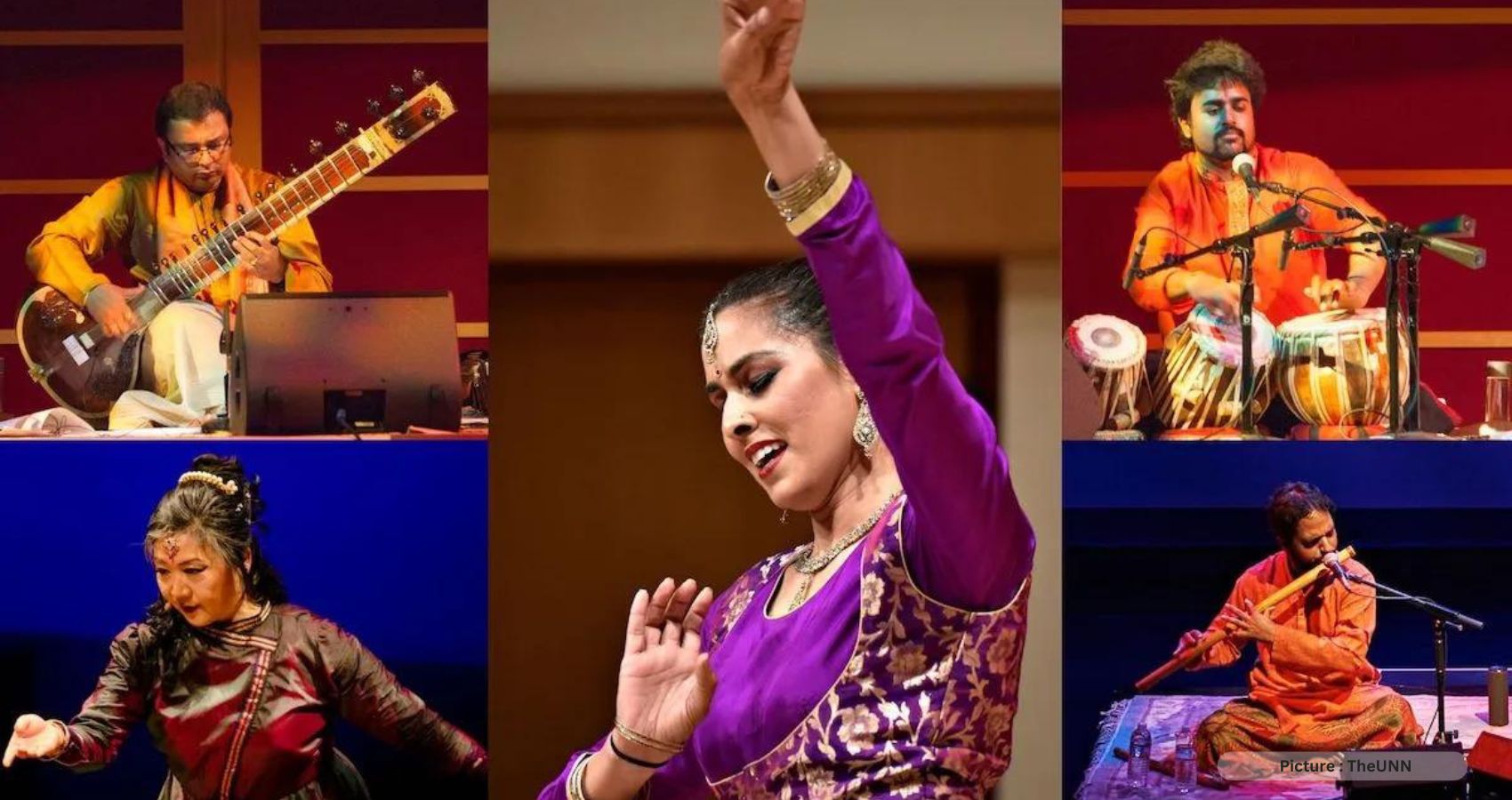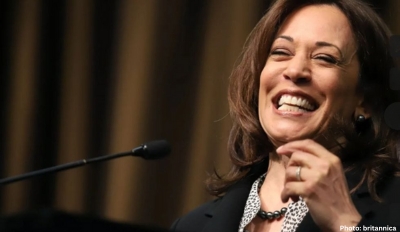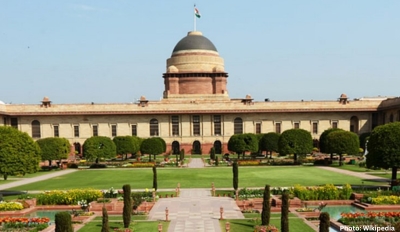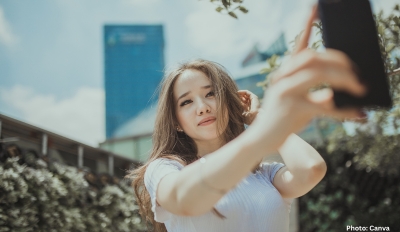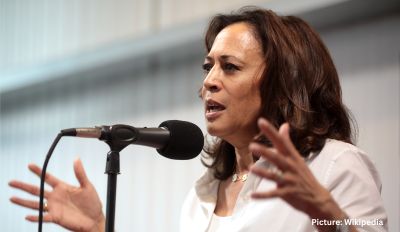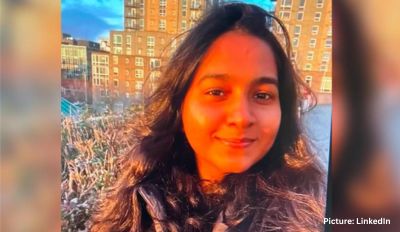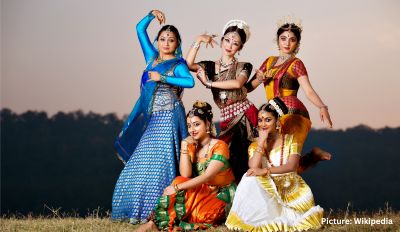Leela Dance Collective, the Los Angeles-based internationally-touring kathak dance company that combines classical dance from North India with contemporary influences, announces today that it has reached its initial $1 million goal for The Leela Foundation. This endowment fund is the only one of its kind, designed to support the future of kathak dance and Hindustani classical music in the United States.
Founded in 2016, Leela Dance Collective is a critically-acclaimed dance company that advances kathak, classical dance from North India. Through traditional works and cross-genre collaborations, Leela brings the richness and depth of Indian classical dance to contemporary audiences. Leela Dance Collective is led by the artistic direction of renowned kathak artists Rukhmani Mehta (previously Rina Mehta), Seibi Lee, and Rachna Nivas, and engages some of today’s leading dancers and musicians, as well as collaborative artists of other genres.
Leela Dance Collective has created groundbreaking productions including SPEAK, Son of the Wind, ReSound, and more. Past highlights include appearances at Ford Theaters, The Broad Stage, Kimmel Center, the Green Music Center, Yerba Buena Center for the Arts, National Center for the Performing Arts in Bombay, Maui Arts & Cultural Center, and NC State LIVE.
Leela also trains the next generation of kathak artists, offering classes, training, and intensives through studios in Los Angeles, San Francisco, Denver and New York, plus online courses. In 2016, Leela launched a campaign to establish The Leela Foundation, the first United States- based endowment for North Indian artistic and cultural heritage. The Leela Foundation aims to build the financial infrastructure necessary for kathak dance and Hindustani classical music to thrive for generations to come, through direct funding for artists in the form of salary support, fellowships, awards, and artist residencies.
“The leaders of Leela Dance Collective are dedicated to the future of our art form: to supporting our fellow professional dancers and musicians, to training the next generation of kathak artists,
and to artistic excellence with our field,” comments Leela Dance Collective Co-Artistic Director Rukhmani Mehta. “Currently, it is virtually impossible for kathak dancers and classical
Indian musicians to pursue a full-time career in their chosen field. This lack of infrastructure is directly tied to the legacy of colonialism, particularly the British dismantling of Indian artistic
and cultural traditions. We still feel the effects of these historical events more than a century later.”
In 2020, The Leela Foundation granted inaugural Artist Awards, providing direct support to some of today’s leading musicians.These first Artist Awards were presented to artists Jayanta
Banerjee, sitarist, musician and composer; Ben Kunin, sarod artist and senior disciple of the maestro, Ud. Ali Akbar Khan; Debashis Sarkar (posthumously), vocalist and musician; and Satyaprakash Mishra, tabla percussionist. In 2021 the fund supported three kathak dance artists: Gretchen Hayden, Joanna DeSouza, and Madhuri Devi Singh.
In 2022, The Leela Foundation supported bansuri artist Jay Gandhi (Hindustani flute). “A $1 million endowment is modest in the world of philanthropy and Western fine arts, but huge for
our field of Kathak and Hindustani classical music,” continued Mehta. “So many incredibly talented and acclaimed classical Indian dance and music artists struggle to support their artistry and lives financially. This endowment fund aims to provide artists with the support they need to thrive and advance these art forms. Without such support, these artists and artistic traditions are at risk. I know this is just the beginning for what our community can build together, to secure and grow the future of our art form. We are so incredibly grateful to the individuals and funders who have helped us reach this initial goal.”
“Leela Dance Collective is one of the very few professional touring companies elevating classical Indian dance and music on the world stage,” commented Shirish Dayal, Executive Vice President of the Tarsadia Foundation. “We believe in their mission to advance and sustain cultural traditions and strengthen infrastructure for kathak dance and Hindustani classical music, and are proud to provide lead support for The Leela Foundation.”
Moving forward, each year 4% of the endowment’s market value will be distributed. The Leela Foundation aims to grow the fund annually through investment income, new donations, and/or bequests.
Endowment Patrons
Lead contributors to the Leela Dance Collective endowment fund include:
Tarsadia Foundation
Shruti Mahajan & Kashyap Deorah
Ushakant & Irma Thakkar
Dinesh & Shaila Mehta
Yogesh & Bina Nivas
Amar & Vinita Singh
Leah & Gary Schoolnik
Prabhu & Poonam Goel
For a list of Leela Dance Collective Board of Directors, click here.
About Kathak Dance & Hindustani Classical Music
Kathak dance and Hindustani classical music are the primary classical dance and music traditions of North India.The forms are inextricably linked. Both traditions have evolved side by side over several centuries. Kathak dance is traditionally performed to a Hindustani music trio or quartet. Exchange and improvisation between dancers and musicians are an integral part of
the performance; historically these forms were considered as one whole system of expression vs separate forms.
 Hindustani classical music was born from a cultural synthesis of several musical streams: the vedic chant tradition dating back to approximately one millennium B.C.E., the equally ancient Persian tradition of Musiqi-e assil, and also folk traditions prevalent in the region. Hindustani music is an oral tradition and musical compositions are transmitted directly from teacher to student. Hindustani music has a rich vocal tradition and the major vocal forms associated with Hindustani classical music are dhrupad, khayal, and thumri. The form has also developed a rich instrumental tradition including sitar, sarod, sarangi, bansuri, harmonium, tabla, pakhawaj and more.
Hindustani classical music was born from a cultural synthesis of several musical streams: the vedic chant tradition dating back to approximately one millennium B.C.E., the equally ancient Persian tradition of Musiqi-e assil, and also folk traditions prevalent in the region. Hindustani music is an oral tradition and musical compositions are transmitted directly from teacher to student. Hindustani music has a rich vocal tradition and the major vocal forms associated with Hindustani classical music are dhrupad, khayal, and thumri. The form has also developed a rich instrumental tradition including sitar, sarod, sarangi, bansuri, harmonium, tabla, pakhawaj and more.
Kathak is one of India’s eight classical dance forms and is said to have originated in Northern India around 400 BCE. The word kathak comes from the Sanskrit word katha, meaning story and a Kathak dancer is referred to as kathaka, the one who tells a story. Modern day Kathak is characterized by percussive footwork, swift pirouettes, dynamic movement, crisp stances, and expressive storytelling. Kathak dancers wear ghungroos, or ankle bells, that add musicality and ornamentation to their footwork and movements. Kathak is traditionally a solo art form that is performed along with live Indian classical music in an intimate setting. When studied, practiced and performed in its fullest capacity, kathak is ultimately a spiritual path to oneself, the world, and the divine.
About the Co-Artistic Directors of Leela Dance Collective
Rukhmani Mehta (previously Rina Mehta) brings a singular voice and vision to the art form of Kathak, classical dance of North India. She is a senior disciple of the legendary Kathak master, Pt. Chitresh Das, and was a principal dancer in his company, the Chitresh Das Dance Company, for over a decade. As Co-Founder and Co-Artistic Director of Leela Dance Collective, Mehta has created numerous original works that bring Kathak dance to contemporary audiences. These works include SPEAK, a Kathak-tap collaboration; Son of the Wind, a dance drama based on India’s epic, the Ramayana; and Encounters with Beauty, a collaboration between Kathak and contemporary chamber music.
She has performed at prestigious venues across the United States and India such as NC State Live, The Broad Stage, Kimmel Center for the Performing Arts, Green Music Center, Yerba Buena Center for the Arts, National Centre for Performing Arts Mumbai, and more. Her artistic works have been funded by the National Endowment for the Arts, New Music USA, California Arts Council, Mid-Atlantic Arts Foundation, Zellerbach Family Foundation, and more. She has received the ACTA Apprenticeship Grant and has been twice nominated for an Isadora Duncan
Dance Award. Mehta is also Artistic Director of Leela Youth Dance Company, a pre-professional performing group that empowers young women to develop their voices and be artists and leaders. The Leela Youth Dance Company has been featured at the San Francisco Museum of Modern Art, Philadelphia Youth Festival, and LA County’s Annual Televised Holiday Celebration.
Seibi Lee is a consummate kathak artist known for her powerful mastery, refined musicality,and dramatic brilliance in character portrayal. A distinguished disciple of Pandit Chitresh Das,she is one of the founders of Leela Dance Collective. Seibi has toured worldwide earning accolades and deep respect for her artistry, including an Isadora Duncan Dance Special Award and two subsequent nominations. As principal dancer of the Chitresh Das Dance Company,Seibi evolved a singular perspective and style through the development of virtuosic character roles in several of Das’s critically acclaimed works, including the dual roles of the tormented demon Marich and beloved tribal prince Hanuman in Sita Haran. Her outstanding portrayal of Hanuman became the inspiration for the central character and creation of Leela’s Son of the Wind – the full-length dance drama bringing to life Hanuman’s rarely told heroic and valorous adventures from the epic Ramayana.
Rachna Nivas is a distinguished torchbearer of legendary master Pandit Chitresh Das’s treasured lineage. She is a founding artist of the Leela Dance Collective, producing powerful works through the collective creativity of trailblazers in kathak. Rachna is co-creator of SPEAK, a kathak-tap collaboration, Son of the Wind, a traditional dance-drama, and Meera, a solo work based on one of India's greatest female poet-saints. Rachna's works have been featured on main stages across the U.S. including The Broad Stage, Yerba Buena Center for the Arts, Maui Arts and Cultural Center, Kimmel Cultural Campus, and more. Her works have been funded by the National Endowment for the Arts, New Music USA, California Arts Council and Zellerbach Family Foundation. Prior to her work with Leela Dance Collective, Rachna was principal dancer with the Chitresh Das Dance Company, performing world-wide in the company's productions and receiving two nominations for an Isadora Duncan Dance Award.
Funding Credits
Leela Dance Collective is supported by the California Arts Council, City of Los Angeles Department of Cultural Affairs, Los Angeles County Arts Commission, National Endowment for the Arts, and New Music USA.

